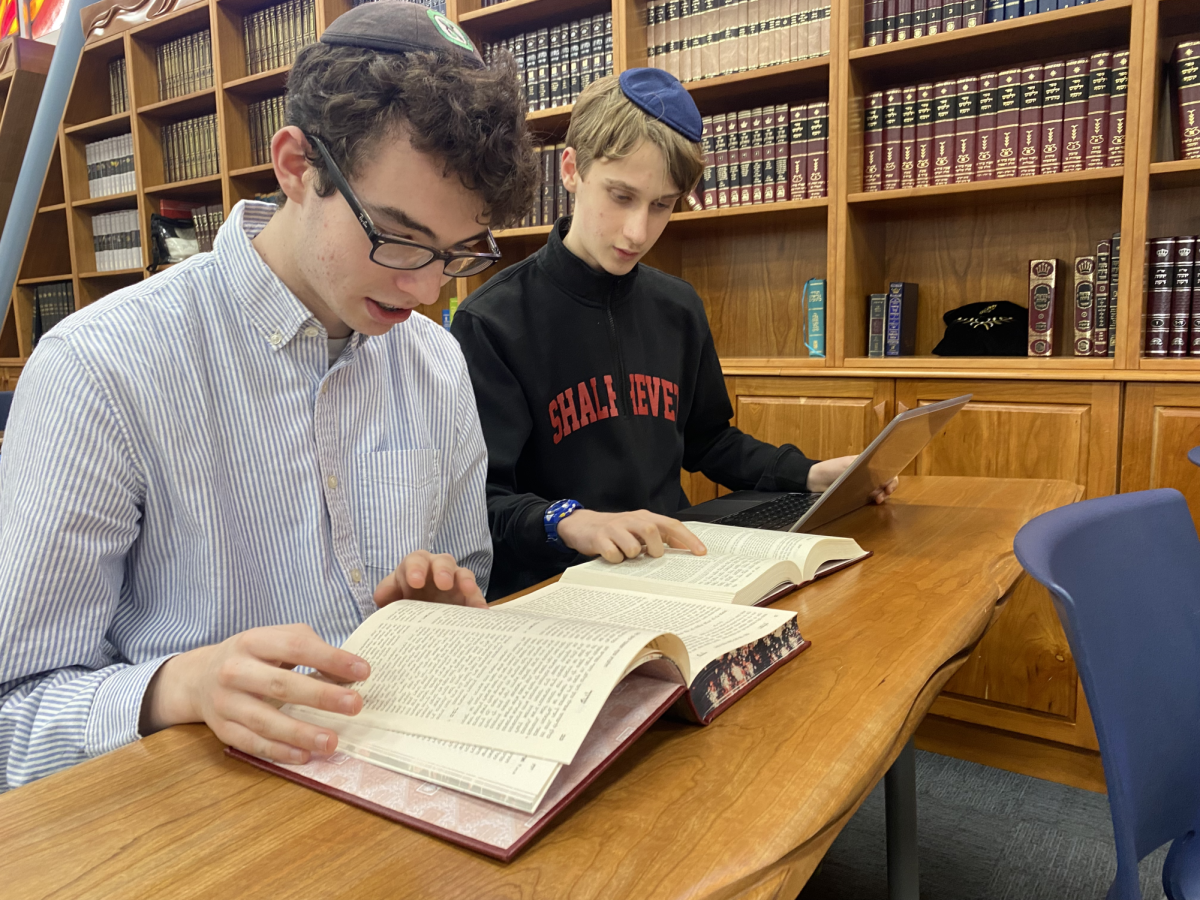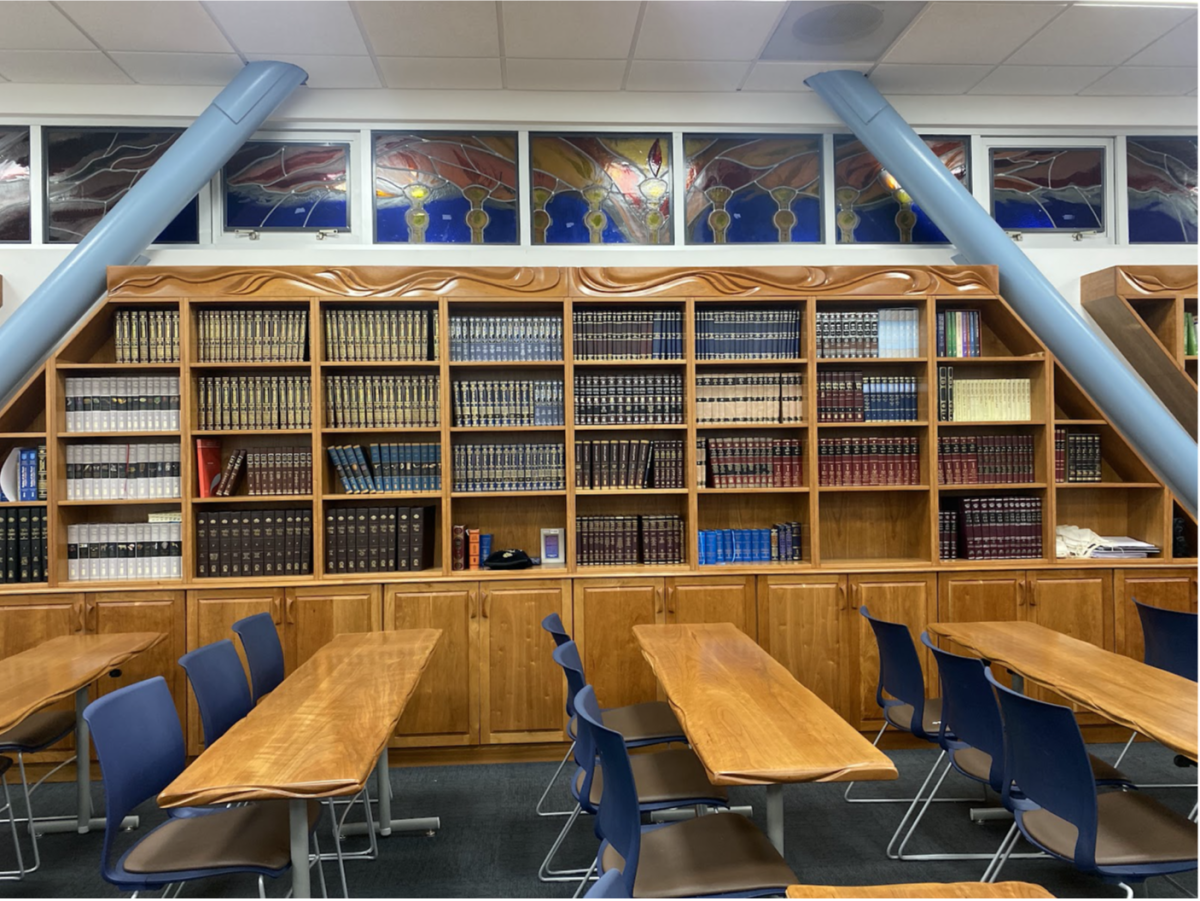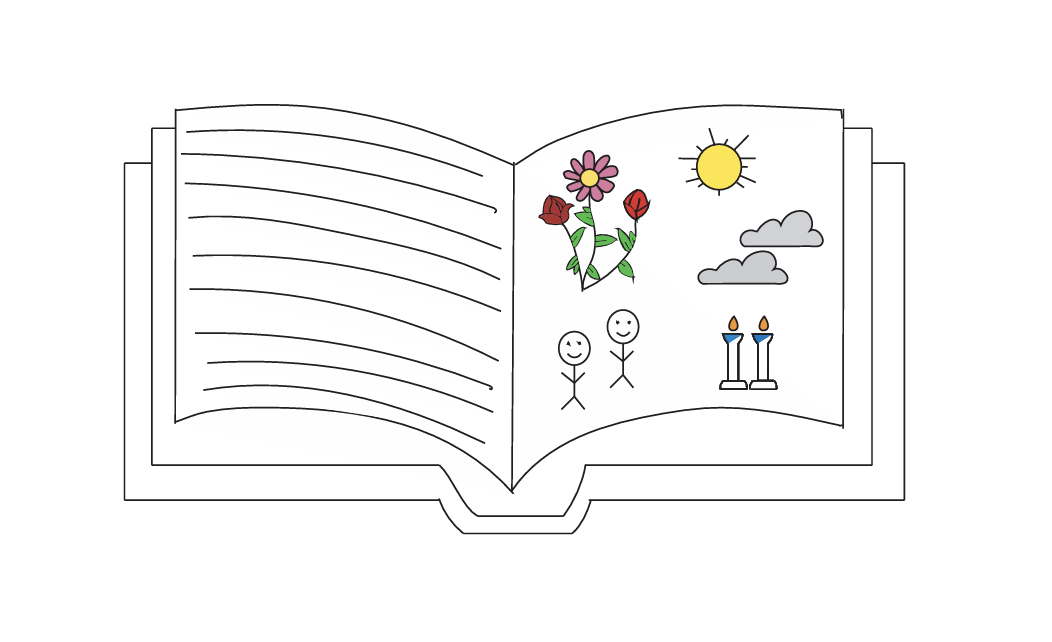“What is unique about Shalhevet students?”
That is the question Rabbi Ari Leubitz sat down to ponder after becoming Judaic Studies Principal in May. It was related to a question he’d been pondering for a long time about Modern Orthodox education.
The answer became an overhaul of Shalhevet’s Judaic program, a series of changes that Rabbi Leubitz hopes will change the quality of Shalhevets Judaic courses, changes that were aided by Mr. Noam Weissman, and Mr. Jason Feld.
Gone will be the Advanced Gemara Track known as “AGT,” and in its place will be new courses designed to improve Judaic Studies for all students.
“We need to raise the rigor and relevancy and quality of the Judaic curriculum as a whole,” Rabbi Leubitz said. “We are now offering courses no other high school offers.”
The first step was an overhaul of already existing classes including ninth grade Honors Tanach and the Modern Middle East (MME) course for juniors. MME, previously divided into two semesters, one for Holocaust Studies, will now be entirely about Israel and the surrounding countries, and taught by Mr. Jason Feld, who developed the course to begin with, Rabbi Leubitz said.
Newly added to the 12th-grade curriculum is a more intensive Holocaust class that will closely align with the seniors’ Poland-Israel trip. That class will be taught by Mr. Feld, though he intends to bring in a series of speakers as well. Rabbi Leubitz said he hoped this would give Holocaust class more significance.
Also new for seniors will be a class on contemporary Modern Orthodoxy taught by Rabbi Yitzhak Etshalom, who also teaches at YULA. The course will explore the relevance of Modern Orthodoxy in daily life, (see story, same page), using contemporary scholars like Rav Kook and Rav Soleveichick.
Ninth-graders will also see the effects of the overhaul of their Judaic courses, with the inauguration of a new program called “Experiential Beit Midrash,” or “XBM.” The XBM program will focus on real-world applications of material inside the Talmud and Tanach, according to Rabbi Rodney Feinerman, who will be teaching the class.
Rabbi Leubitz also said that entirely new courses would be added, including another that will also be taught by Rabbi Feinerman on the psychology of Bible studies. Rabbi Leubitz said it would be open to all upperclassmen.
“It’s going to teach a deeper understanding of Bible stories through the lens of psychology,” said Rabbi Feinerman. “We’re going to talk about Freud, and how his theories apply to the Bible and in real life, and in real relationships.”
A class that Shalhevet can look forward to seeing in a new light, while not directly a part of the Judaic department, is freshman Hebrew. Ninth graders will now have the option of taking Hebrew Ivrit b’Ivrit — Hebrew in Hebrew — taught by Mrs. Anat Sabo, or a class taught online, straight from Israel, on contemporary Jewish topics. A casualty of the creation of all of these courses will be the AGT – Advanced Gemara Track – program at Shalhevet.
“The new honors track is bang-up,” Mr. Feld said. “It teaches Talmudic jurisprudence, but more than that, it teaches jurispridence. It’s not just about opening up a Gemara.”
With all that’s new this year, changes in the curriculum are far from over, Rabbi Leubitz said Shalhevet will continue to examine its Judaic classes in order to fully optimize what its students are getting out of them.
“Change is good,” Rabbi Leubitz said. “We have to keep changing, asking questions and tweaking courses, or the system becomes stagnant and trite.







Yael Rabin '10 • Oct 31, 2010 at 10:24 pm
The other day I received a package from home with The Boiling Point in it, and I wanted to congratulate you on a job well done on the first issue of the school year! The issue was informative and helpful in understanding the changes that are going on at Shalhevet. This year I am attending Midreshet Lindenbaum (formerly known as Brovendars) in Jerusalem. My day is intense; I have class from 8:30-10 at night, but sometimes it seems no different than staying late after school for extracurriculars.
Before I left for Israel I had the Leubitz family over for Shabbat lunch where Rabbi Leubitz told me about some of the changes that were going to be taking place this year, including the ones in the Judaic studies department. It’s interesting, while I was a student at Shalhevet I didn’t realize how much I was lacking in basic knowledge of Tanach, halacha, and gemarah. Fortunately though I was able to have Rabbi David Rue for my sophomore year in the Bet Midrash program where we actually learned gemarah as opposed to trying to see who can get the teacher off topic first. Don’t get me wrong, the rabbis and Judaic studies teachers at Shalhevet are good, but the programs themselves are not as good.
So here I am at Midreshet Lindenbaum having gemarah in the morning for 2-3 hours (depending on the day), Hilchot Shabbat for a couple of hours, Nach (I’m learning the 5 Megillot) for a couple of hours, Sefer Breishit in Hebrew, Halacha confronts the 21st century, Woman and Halacha, Rav Kook, Bkiut Machshavah, night seder, and all my optional classes (one of them a 5 hour Torah Seminar class, which is definitely one of the highlights of my week), and all I keep thinking is “I wish Shalhevet had better prepared me, had better equipped me, with basic Tanach knowledge.” While some may react to the change in Judaic studies curriculum in a negative way, don’t because honestly you should be learned and being learned doesn’t mean being religious. Rabbi Feinerman’s Tanach class that includes Freudian references in the Torah, Rabbi Etshalom’s Modern Orthodoxy class (Seniors, you’re so lucky to have him), “Experiential Bet Midrash” program are all what Shalhevet, and especially you the students need. My teacher that teaches Sefer Breishit, Rav Shmuel Klitsner, actually published a book about the Torah and all the Freudian slips of the Torah, and let me tell you it’s quite interesting when we discuss this in class, especially after taking AP Psychology.
I know that Judaic studies classes may seem like a joke sometimes, but you all should feel so fortunate to have the opportunity to educate yourself by these means. I don’t know of many other schools that offer these types of classes so take advantage of it! Get off your Blackberry’s, iPhones, Facebook, stop studying for that AP test, and PAY ATTENTION! It doesn’t matter whether or not you believe in G-d, the Torah, or whether you even want to follow Halacha. I’m learning Torah and Nach more as a piece of literature than a doctrine. Of course G-d is part of it because it’s the Torah, but today in class when we were learning Yonah, our teacher asked us what literary devices were used in Yonah’s prayer in the dag. Did you ever realize that the Torah is full of repeating themes starting with the first perek of Breishit? Did you ever notice that when G-d creates something the Torah uses “elokim,” and not “hashem?” And this isn’t just in the first perek of Bereishit, it’s found throughout the Torah. I can go on and on about other things I’ve learned in the past few weeks, but I’ll stop.
I don’t know if I have ever been this excited about learning anything Jewish, ever! So please, take advantage of receiving a Jewish education because it doesn’t matter whether or not you actually want to follow Torah, or G-d, or Judaism, etc. but personally I think it’s most important to have a strong background and to be familiar with the fundamentals of our religion.
Shanah Tova,
Yael M. Rabin Class of ‘10
p.s. in last year’s final issue you said that I was going to Midreshet Harova this year, however I am not. I am attending Midreshet Lindenbaum.
Yael Rabin '10 • Oct 31, 2010 at 10:23 pm
The other day I received a package from home with The Boiling Point in it, and I wanted to congratulate you on a job well done on the first issue of the school year! The issue was informative and helpful in understanding the changes that are going on at Shalhevet. This year I am attending Midreshet Lindenbaum (formerly known as Brovender’s) in Jerusalem. My day is intense; I have class from 8:30 a.m. to 10 at night, but sometimes it seems no different than staying late after school for extracurriculars.
Before I left for Israel my family had the Leubitz family over for Shabbat lunch and Rabbi Leubitz told me about some of the changes that were going to be taking place this year, including the ones in the Judaic studies department. It’s interesting, while I was a student at Shalhevet I didn’t realize how much I was lacking in basic knowledge of Tanach, halacha, and gemarah. Fortunately though I was able to have Rabbi David Rue for my sophomore year in the Bet Midrash program where we actually learned gemarah as opposed to trying to see who can get the teacher off topic first. Don’t get me wrong, the rabbis and Judaic studies teachers at Shalhevet are good, but the programs themselves are not as good.
So here I am at Midreshet Lindenbaum having gemarah in the morning for 2-3 hours (depending on the day), Hilchot Shabbat for a couple of hours, Nach (I’m learning the 5 Megillot) for a couple of hours, Sefer Breishit in Hebrew, Halacha confronts the 21st century, Woman and Halacha, Rav Kook, Bkiut Machshavah, night seder, and all my optional classes (one of them a 5 hour Torah Seminar class, which is definitely one of the highlights of my week), and all I keep thinking is “I wish Shalhevet had better prepared me, had better equipped me, with basic Tanach knowledge.” While some may react to the change in Judaic studies curriculum in a negative way, don’t because honestly you should be learned and being learned doesn’t mean being religious. Rabbi Feinerman’s Tanach class that includes Freudian references in the Torah, Rabbi Etshalom’s Modern Orthodoxy class (Seniors, you’re so lucky to have him), “Experiential Bet Midrash” program are all what Shalhevet, and especially you the students need. My teacher that teaches Sefer Breishit, Rav Shmuel Klitsner, actually published a book about the Torah and all the Freudian slips of the Torah, and let me tell you it’s quite interesting when we discuss this in class, especially after taking AP Psychology.
I know that Judaic studies classes may seem like a joke sometimes, but you all should feel so fortunate to have the opportunity to educate yourself by these means. I don’t know of many other schools that offer these types of classes so take advantage of it! Get off your Blackberry’s, iPhones, Facebook, stop studying for that AP test, and PAY ATTENTION! It doesn’t matter whether or not you believe in G-d, the Torah, or whether you even want to follow Halacha. I’m learning Torah and Nach more as a piece of literature than a doctrine. Of course G-d is part of it because it’s the Torah, but today in class when we were learning Yonah, our teacher asked us what literary devices were used in Yonah’s prayer in the dag. Did you ever realize that the Torah is full of repeating themes starting with the first perek of Breishit? Did you ever notice that when G-d creates something the Torah uses “elokim,” and not “hashem?” And this isn’t just in the first perek of Bereishit, it’s found throughout the Torah. I can go on and on about other things I’ve learned in the past few weeks, but I’ll stop.
I don’t know if I have ever been this excited about learning anything Jewish, ever! So please, take advantage of receiving a Jewish education because it doesn’t matter whether or not you actually want to follow Torah, or G-d, or Judaism, etc. but personally I think it’s most important to have a strong background and to be familiar with the fundamentals of our religion.
Shanah Tova,
Yael M. Rabin Class of ‘10
p.s. in last year’s final issue you said that I was going to Midreshet Harova this year, however I am not. I am attending Midreshet Lindenbaum.